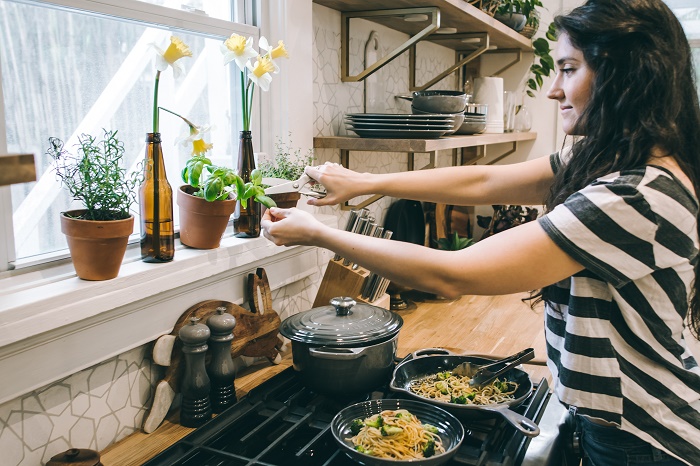Looking after someone and nutrition
Ensuring that someone you look after gets the right nutrition isn’t always straight forward. We provide some nutrition-related tips and guidance on ways you can help make sure they get all the nutrients they need.

If you are worried that someone you care for is struggling with low energy levels, trying to base their meals and snacks on the following foods may help, as they are high in energy and protein.
For protein and energy try:
- meat, oily fish, eggs, nuts, full fat dairy products, such as yoghurt or cheese.
For a good source of energy try:
- wholegrain varieties of pasta, bread or rice, potatoes, bread, rice, crackers or oatcakes.
Some ideas to provide someone who is recovering from illness with a boost (unless they have specific dietary requirements):
- Try adding honey or pre-frozen forest fruits to porridge.
- Try adding butter or vegan substitutes to mashed potatoes and sauces.
- Try making tasty soups and broths to incorporate potatoes, lentils, pulses and vegetables for example.
For more ideas, see the eat well section of the NHS website and these days, you don’t have to reach for a recipe book for inspiration: bbcgoodfood.com/recipes
- Provide small, frequent meals and snacks every two to three hours.
- In general, it is best to avoid drinking fluids at the same time as eating. Whilst keeping well hydrated is very important, drinking during or just before a meal may limit how much you eat. However, anyone who has specific advice from their health professional regarding fluids, should continue to follow this.
- Get some fresh air outside or sit by an open window prior to, or during eating.
- Provide smaller portions on small plates.
- Offer nourishing drinks based on wholesome but tasty ingredients such as fruit.
- Ensure they are taking vitamin D supplements during autumn and winter when there is less sunlight.
- Seek professional medical advice from a GP if you are worried that someone is not getting the nutrition they need.
Whether someone is underweight or overweight, helping them achieve a balanced diet with foods from all the different food groups is important to provide all the nutrients they need.
As a general guide, the NHS Eatwell Plate model offers a trustworthy source of reference with examples of how to achieve the right balance. See ‘Eating well’ for guidance.
Keeping a diary to monitor what impact it makes as you gradually help change their eating habits may help with motivation. It could be easier to make gradual changes unless your doctor or a specialist, such as a dietician, has requested that significant changes are needed straight away.
BAPEN has designed a simple self-assessment tool for you to check whether the person you care for is at risk of being underweight and malnourished.
Important notes
- Anyone who has other conditions such as diabetes or high cholesterol should always seek personal advice from their health professional, before making changes to their eating habits.
- This guidance offers short-term solutions to help build up a person’s nutritional intake, for example after illness. Anyone experiencing severe problems should speak to their GP, nutritionist or dietitian.
We know that not everyone is able to eat the extra food required to meet their nutritional needs.
One option is medical nutrition, a scientifically formulated liquid food that is available in the form of a drink containing energy, protein, vitamins and minerals. There are also dessert, yoghurt and soup style versions available.
Medical nutrition, along with dietary advice, can lead to benefits such as improved weight, more strength and independence, as well as helping the body to heal itself.
For advice about medical nutrition, speak to your GP.
